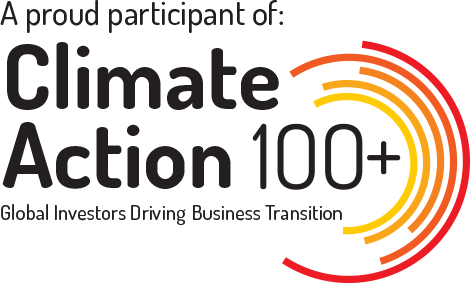At Polar Capital, ESG considerations aren’t new to our investment teams – or indeed to our culture and way of working. By providing a centralised infrastructure upon which our autonomous investment teams can leverage and develop, we believe we are well placed to meet our clients’ needs and desired outcomes.
One of our founding principles is the autonomy of our investment teams, and this same principle is applied to our responsible investment practices.
We believe that incorporating ESG and stewardship into the investment process should be driven by our investment teams themselves. This ensures that ESG analysis, engagement and voting decisions are closely linked to the investment decision-making process, while being supported by robust central resources.
We do not view ESG questions as non-financial. ESG issues have the potential to affect the long-term financial profile of companies in the same way as more obvious financial considerations such as sales, margins, and asset returns.

We have implemented a structure that allows us to integrate ESG concerns and risks into our company strategy.
Overall responsibility for this belongs to the Polar Capital Holdings Board and ESG concerns are prominent in the Board’s discussions and strategy development.
Our Sustainability Committee co-ordinates the company’s sustainability initiatives at a corporate level, including implementation of key regulatory and industry advances and sharing of best practises for ESG integration and knowledge insight internally. It is comprised of members of staff from across the business including the CEO, CIO, CRO and Head of Sustainability.
We have also established our Responsible Investment Working Group, which includes members from all investment teams, providing a forum for them to share approaches and best practise. This enables collaboration on shareholder engagement, voting, and developing our climate change strategy.
These are all centrally supported by the Polar Capital Sustainability team, which assists our investment teams with incoming sustainability-related regulation, provides oversight of responsible investment practises, enhances our sustainability data capabilities and develops our stewardship practises.


Each investment team at Polar Capital has autonomy in the way it evaluates ESG issues.
This level of investment autonomy is central to Polar Capital’s approach. Nevertheless, portfolio characteristics are observed and monitored centrally by Polar Capital’s CIO and Risk and Sustainability teams. ESG monitoring is an integral part of their oversight process.
Each investment strategy is subject to quarterly reviews, and on an ongoing basis the Sustainability team monitors changes in the aggregated ESG scores and any material changes in company ratings. Portfolios are screened to highlight any lagging company practices with regards to the UN Global Compact principles, global norms, human or labour rights.
Company-specific carbon performance data and aggregated portfolio-level carbon metrics are also included for review.
An active, bottom-up approach to engagement and voting is an essential way for Polar Capital’s investment teams to perform their duty as stewards of their investors’ capital.
While we are not activist investors, we engage with companies where we feel it will have a positive impact on company performance or enhance stakeholder value. This activity is not outsourced or delegated to a third party but led by the investment teams themselves.
Portfolio managers and analysts frequently meet company management, an integral part of the investment process. In this forum they raise strategic ESG issues such as capital allocation, board make-up, remuneration criteria and specific environmental and social questions.
Investment teams also conduct more active engagements, to encourage sustainable practices and actions in investee companies. Topics range from improvements in disclosure on various ESG measures, to more targeted engagements in pursuit of a specific outcome, such as improvement in climate strategy or social practices.
The materiality of an issue is an important consideration for how an engagement is conducted, informing the selection and prioritisation of engagements by investment teams.



Voting
Polar Capital uses Institutional Shareholder Services (ISS) to assist with proxy voting. This highlights all situations where the proxy adviser recommends voting against management, identifies contentious issues and produces research as part of recommendations.
Where ISS recommends voting against management, these issues are reviewed by the investment teams who then ultimately decide how to vote.
Further information on Polar Capital’s approach to voting can be found in the Polar Capital Proxy Voting Policy, and shareholder engagement can be found in our SRD II Shareholder Engagement Policy. Proxy voting records are summarised here.
Exclusions
All Polar Capital strategies adhere to formal exclusions on all companies that are linked to the production and/or marketing of controversial weapons (cluster munitions, antipersonnel mines, depleted uranium etc). Polar Capital also considers EU sanctions, the US OFAC list and UN-sanctioned entities.
Industry initiatives and involvement
Polar Capital is a signatory of the UN Principles for Responsible Investment (PRI), a United Nations-supported, global network of investors, that seeks to promote responsible investment and its incorporation into investment decision-making and stewardship practices.
We are a member of the Institutional Investors Group on Climate Change (IIGCC), the European membership body for investor collaboration on climate change, and a participant in the investor-led engagement initiative Climate Action 100+, which aims to influence the behaviour of key global greenhouse gas emitting companies.
Polar Capital also a signatory to the UK Stewardship Code, which sets high stewardship standards based around twelve core principles. Our annual Stewardship Code Report details the ongoing activity and outcomes of our stewardship approach at strategy and firm level.

The EU’s Sustainable Finance Disclosure Regulation came into force on 10 March 2021 and requires Polar Capital to provide information on its approach to sustainability at both investment manager level and at portfolio level

Investment Manager Level Requirements
Polar Capital is required to explain whether, and if so how, it considers the adverse impacts of its investment decisions on sustainability factors at investment manager level, across all the strategies that it manages. At present, Polar Capital does not take into account the adverse impacts of its decisions on sustainability factors but has provided further information on its intent to do so in future here.
Information on how Polar Capital takes into account sustainability risks within its remuneration decisions can be found in Polar Capital’s Remuneration Code here.
Product Level Requirements
For the strategies subject to the SFDR, Polar Capital is required to provide information on how sustainability risks are considered in the investment decision-making process in pre-contractual disclosures.
This information is provided in the Risk Factors section of the relevant prospectus supplements, which can be requested from Polar Capital.
Polar Capital provides further information in respect of its Article 8 and Article 9 Strategies within Annexes to each prospectus supplement.


